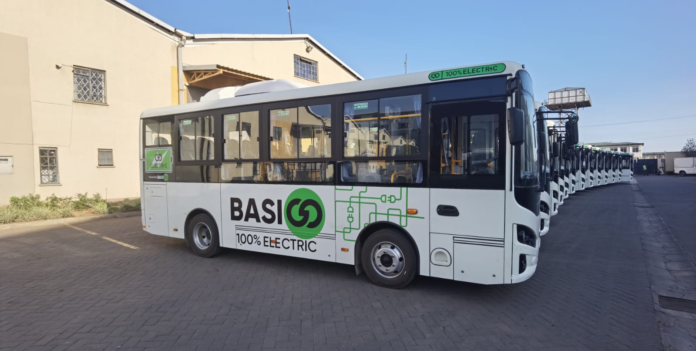BasiGo which has been known for its stewardship towards a greener transportation sector with its flagship electric buses, is witnessing a surge in orders for its buses by public service transport operators. In a recent analysis, the e-mobility champion has since seen notable orders pouring in from the public service vehicle (PSV) operators in Nairobi where the company is poised for a remarkable expansion.
Quick Summary:
- BasiGo, a local electric vehicle assembler, has received orders for 500 buses from PSV operators in Nairobi.
- This surge in demand marks a substantial leap for the company, amplifying its sales by nearly 24 times.
- The orders coincide with the recent launch of Kenya’s first assembly line for electric buses.
The brain behind BasiGo, Jit Bhattacharya, shared his excitement about the influx of orders during the Second E-mobility Stakeholders’ Conference and Exhibition that was held here in Nairobi. According to Jit, deposits for the said orders have already been secured and is now gearing up to swiftly fulfill the orders as well as roll out these eco-friendly buses in Nairobi.
Ever since BasiGo was its introduced, the company has gradually carved its niche in the market especially having sold 21 buses to date. However, the latest surge in demand marks a significant milestone for the company where Mr. Bhattacharya has strongly emphasized its importance, highlighting the substantial growth opportunity it presents for BasiGo.
Additionally, the company seems to have hit the market at the right time especially with the establishment of an assembly line for electric buses at the Kenya Vehicle Manufacturers plant in Thika a development that couldn’t have come at a better time. The strategic move is touted position the company at a better place that will enable it to meet the escalating demand head-on. There are also plans to ramp up production to 20 buses per month and BasiGo is right on course for a transformative phase in its journey.
In addition to the impressive surge in demand, BasiGo sees an ample room for further expansion. The recent orders from PSV owners constitute merely three percent of the total public transport buses in Nairobi. Considering these facts, it represents a clear picture of a growing appetite for electric buses as well as the untapped potential that lies ahead.
Challenges of e-mobility
While the promise of e-mobility is tantalizing, challenges persist. The lack of adequate charging infrastructure remains a significant hurdle that is hindering a widespread adoption of electric vehicles. But there are several initiatives like Kenya Power’s commitment to invest in electric vehicles and charging infrastructure signal a promising shift towards overcoming these obstacles. Moreover, government support in the form of incentives such as tax breaks further bolsters the prospects of the electric vehicle sector.
